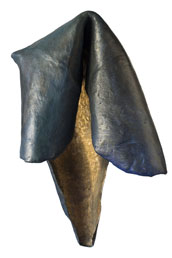Pages: 1 2 3 4 5 6 7 8 9 10 11 12 13 14 15 16 17
Curious Masonry: Three Translations from the Anglo-Saxon
by Christopher Patton
Hallifax, NS: Gaspereau Press, 2011
$15.95
A caveat: Gaspereau Press has been known to publish my work. However, my interest in Christopher Patton’s Curious Masonry: Three Translations from the Anglo-Saxon stems from my brief enrollment in a Queen’s University course (taught by the intriguingly named George Clark), on antique, not-yet-English literature.
When I realized that the course was a study of a now-foreign language, I had to withdraw: Such is beyond my ken. But the old Anglo-Saxon verses appeal to me, anyway, because they influence much of East Coast poetry: check out poets like Cape Breton’s Don Domanski or Newfoundland’s Boyd Warren Chubbs.
Part of the power of this primeval poetry is its emphasis on elements, on storm and sea, and its visceral preaching that we are mortals who ought to enjoy mead and ale and love while we can, for, tomorrow we are drowned, speared, or spit by swords. The Old English poetry is Ecclesiastes salted with Revelation.
Living on Saltspring Island, BC, and in Salt Lake City, UT (where he is drafting a doctorate), Patton is already a noted poet and children’s book author. In Curious Masonry, he offers translations from the Exeter Book—“a volume of Old English poetry used, over centuries, to store gold foil for illumination of texts thought more meaningful.”
In a sense, then, the three poems – “The Ruin,” “The Seafarer,” and “The Earthwalker” – are just overlooked pieces from a book that was valued more for storage of gilt than it was for its songs. (A fourth poem, “Hearth,” is Patton’s experimental rewriting of “The Earthwalker.”)
Introducing the work, Patton stresses that the Exeter Book has been treated as an object, not as art: Its face shows “knife scores” dating from its use as a “cutting board”; “A pot of glue or a beer mug has left a ring mark; a burning brand was laid across the book, leaving a slantwise gash through the last fourteen pages.”
The damage endured by the Exter Book befits the poems it contains, which address decay and disappearance. “The Earthwalker” begins, “I have bound heart and mind in chains, since years ago I covered a goldfriend in the dark of earth and wandered off, bearing a winter sadness over the weft of waves….” Like Job, the speaker declares, “Joy is a ruin.”
At the end, he (presumably) notes, “O gleaming cup. O mailed warrior. They and their time have gone under the dark helm of night, as if they had never been.” Gaspereau Press provides the Old English verses for the knowledgeable reader to compare the original poetry to Patton’s “palimpsests.” But if you like scotch, especially that redolent of peat moss and that awakens the spirit due to its somber – and sobering – notes, you ought to enjoy these poems.





No Comments so far ↓
There are no comments yet...Kick things off by filling out the form below.